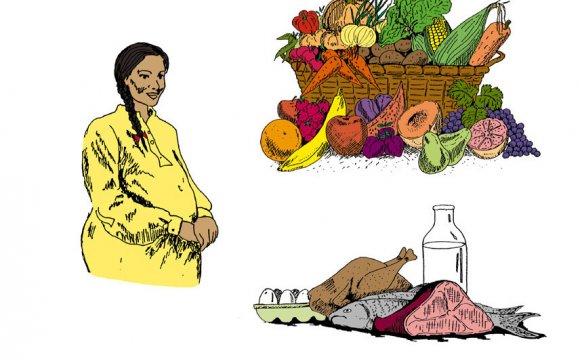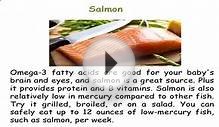
 Without a doubt, a nutritious, well-balanced eating plan can be one of the greatest gifts you give to your developing baby. Pregnancy nutrition is essential to a healthy baby. Ideally, adopting a healthy eating plan before pregnancy is best.
Without a doubt, a nutritious, well-balanced eating plan can be one of the greatest gifts you give to your developing baby. Pregnancy nutrition is essential to a healthy baby. Ideally, adopting a healthy eating plan before pregnancy is best.
No matter how many weeks are left on your countdown calendar, it’s never too late to start! Supplying your own body with a tasty blend of nutritious foods can improve your fertility, keep you feeling healthy during pregnancy, and pave the way for an easier labor.
It can also help to establish essential building blocks of growth and overall health for your child.
The food we eat on a daily basis affects how our bodies work, how we heal and grow, and how we maintain energy and strength for years to come. It also determines the basic nutritional health that our children are born with, and provides a model for their eating habits during childhood and beyond.
Pregnancy is the one time in your life when your eating habits directly affect another person. Your decision to incorporate delicious vegetables, whole grains and legumes, lean protein, and other wise food choices into your eating plan before and during pregnancy will give your baby a strong start in life.
Pregnancy Nutrition: Weight Change and Calories
Your body will gain weight during your pregnancy! As you watch your weight begin to increase, take it as proof that your body is nurturing your growing baby. By the time you are ready to give birth, your total blood volume will have increased by as much as 60%.
Your breasts will have filled with milk. Your uterus will have grown to accommodate your baby and has filled with amniotic fluid. Your baby has grown to weigh 6 to 10 pounds (on average). To accomplish all of these productive changes, your body needs approximately 300 extra calories per day during your 2nd and 3rd trimester of pregnancy.
Every woman should discuss her individual nutritional needs with her health care provider. Do not neglect your baby’s health by neglecting your own!
Myth: Now that you are pregnant, you should be eating for two.
Fact: It is true that your nutrient needs increase, but energy requirements only increase by about 300 calories per day for the second and third trimester of pregnancy.
Myth: Gaining less weight during pregnancy will make delivery easier.
Fact: Mothers who do not gain enough weight during pregnancy place their babies at risk for severe complications such as premature birth, which can cause lung and heart problems.
Myth: If you gain the right amount of weight during pregnancy, none of it will be fat gain.
Fact: A healthy pregnancy includes fat storage. Your body uses this excess fat as energy during labor and breastfeeding.
Myth: Pregnant women only crave the foods their bodies need.
Fact: Pregnant women can crave foods of any type. Cravings should not be the sole indicator of nutritional needs.
INTERESTING VIDEO




 Nutrition and pregnancy refers to the nutrient intake, and dietary planning that is undertaken before, during and after pregnancy.
Nutrition and pregnancy refers to the nutrient intake, and dietary planning that is undertaken before, during and after pregnancy.







